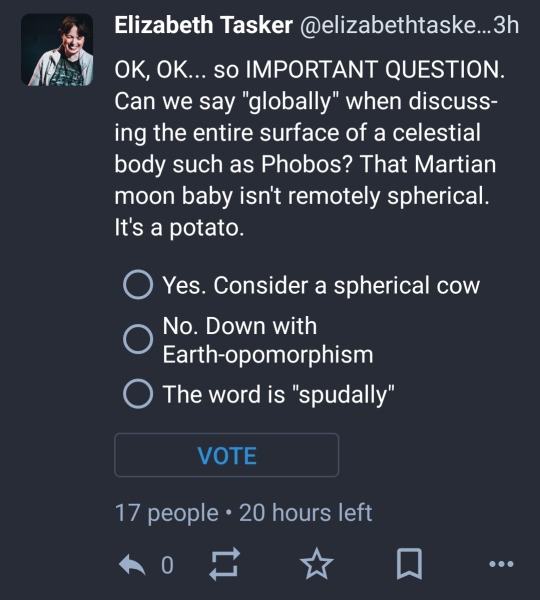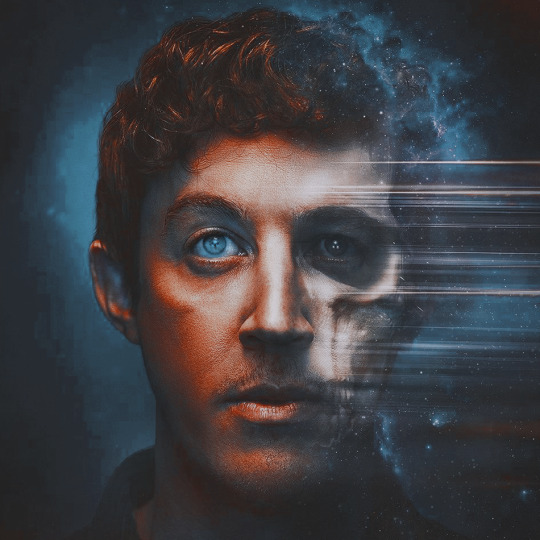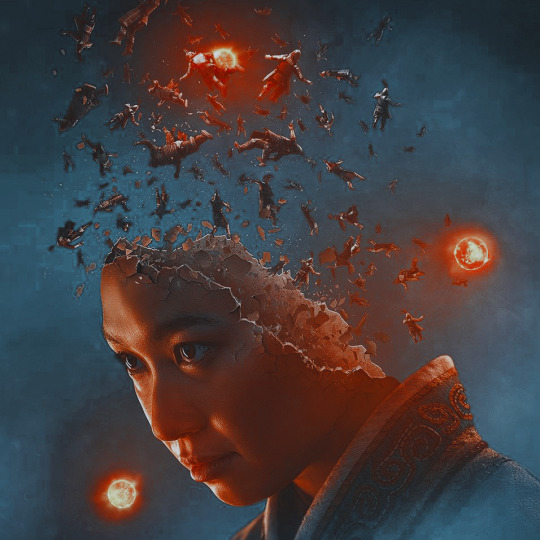Text
youtube
This video has an important section where he talks about using money for its utility to make life comfortable and you should really chase happiness and not money.
0 notes
Text
youtube
This episode covers a good range of topics - history of mapping in India, ending with the Survey of India.
The technology stack that enables mapping apps - GPS satellites, remote sensing satellites, and Images released into the public domain.
There is some deserved bitching about the Survey of India which did it's last survey in 1934 and has weird rules, and ISRO that does not freely release satellite image into the public domain. There is also deserved bitching about Government efforts to block OpenStreetMap efforts.
0 notes
Text
Space Resources
I was going through some very old emails from the days of SEDS India and Moon Society, India. This is around 2010. There was a student at the Indian School of Mines, Dhanbad (with the email id - [email protected] that keeps bouncing then and now) who wanted to become a member. We wanted to take his help to understand the data from Chandrayaan-I’s Moon Mineralogy Mapper (M3). There is not much of an email trail but there is a mobile number.
ISM, Dhanbad
This reminded me of ISM itself. The Indian School of Mines, Dhanbad is an interesting place which could be the center of focus soon. ISM Dhanbad has been converted into an IIT, but I hope it maintains some of its character as a mine school. This school will very soon be a very important school for space companies and India’s space programme.
The principles of extraction may or may not differ much from Earth to other celestial bodies. So far we have only picked up rocks that were already on the surface of a celestial body. We have dug some holes on some celestial objects as well, but that was mostly to collect samples.
Evidence
I asked on Twitter/X if anyone at ISM, Dhanbad is working on extracting resources from celestial objects. I have not received a reply.
Anyone at @IITISM_DHANBAD working on mining/resource utilisation of Moon, Mars, or the asteroids?
— Pradeep | പ്രദീപ് (@pradx) April 10, 2024
India Today had reported in 2021 that they had plans to start courses on asteroid mining. There is no update about the same. They do now have a center for seabed mining but no center for asteroid mining.
In Edition 81 of The Takshashila Institution’s High Tech Geopolitics newsletter, Ashwin Prasad, Space Power Analyst, talks about the consensus emerging between the United States and China about resource utilization on the Moon.
In a recent episode of SparX podcast by Mukesh Bansal, Pixxel’s Awais Ahmed speaks about how we will begin by extracting water, before moving on to other things.
Why will this be important?
The consensus emerging between US and China shows how important extraction of space resources is going to be. India is one of the few countries that now has the capability to land on the Moon. But, we also need to build the capability for extracting resources, studying mineral resources, and using those resources on the Moon and back on Earth. ISM, Dhanbad could be the place where we start to learn how to do this and build companies which do this.
0 notes
Text
"Even so, it was startling to hear the name Stanislaw Ulam come up on a streaming TV series. Somebody was doing their homework, as Freeman Dyson liked to say. Ulam’s name will always be associated with nuclear pulse propulsion (along with the Monte Carlo method of computation and many other key developments in nuclear physics). It was in 1955 that he and Cornelius Everett performed the first full mathematical treatment of what would become Orion, but the concept goes back as far as Ulam’s initial Los Alamos calculations in 1947."
"Familiar with this work, Johndale Solem took the next step. Solem worked at Los Alamos from 1969 to 2000, along the way authoring numerous scientific and technical papers. In the early 1990s, he discussed the design he called Medusa, noting in an internal report that his spacecraft would look something like a jellyfish as it moved through space."
The comments also have a healthy discussion about where the Staircase idea in the Netflix series originates from. There is also discussion between the American and Chinese versions of the 3 body problem.
0 notes
Text
The true post-cyberpunk hero is a noir forensic accountant
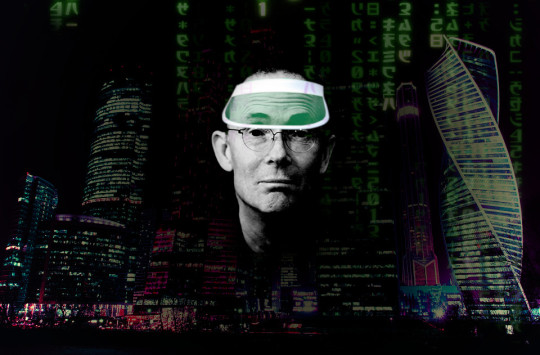
I'm touring my new, nationally bestselling novel The Bezzle! Catch me in TOMORROW (Apr 17) in CHICAGO, then Torino (Apr 21) Marin County (Apr 27), Winnipeg (May 2), Calgary (May 3), Vancouver (May 4), and beyond!

I was reared on cyberpunk fiction, I ended up spending 25 years at my EFF day-job working at the weird edge of tech and human rights, even as I wrote sf that tried to fuse my love of cyberpunk with my urgent, lifelong struggle over who computers do things for and who they do them to.
That makes me an official "post-cyberpunk" writer (TM). Don't take my word for it: I'm in the canon:
https://tachyonpublications.com/product/rewired-the-post-cyberpunk-anthology-2/
One of the editors of that "post-cyberpunk" anthology was John Kessel, who is, not coincidentally, the first writer to expose me to the power of literary criticism to change the way I felt about a novel, both as a writer and a reader:
https://locusmag.com/2012/05/cory-doctorow-a-prose-by-any-other-name/
It was Kessel's 2004 Foundation essay, "Creating the Innocent Killer: Ender's Game, Intention, and Morality," that helped me understand litcrit. Kessel expertly surfaces the subtext of Card's Ender's Game and connects it to Card's politics. In so doing, he completely reframed how I felt about a book I'd read several times and had considered a favorite:
https://johnjosephkessel.wixsite.com/kessel-website/creating-the-innocent-killer
This is a head-spinning experience for a reader, but it's even wilder to experience it as a writer. Thankfully, the majority of literary criticism about my work has been positive, but even then, discovering something that's clearly present in one of my novels, but which I didn't consciously include, is a (very pleasant!) mind-fuck.
A recent example: Blair Fix's review of my 2023 novel Red Team Blues which he calls "an anti-finance finance thriller":
https://economicsfromthetopdown.com/2023/05/13/red-team-blues-cory-doctorows-anti-finance-thriller/
Fix – a radical economist – perfectly captures the correspondence between my hero, the forensic accountant Martin Hench, and the heroes of noir detective novels. Namely, that a noir detective is a kind of unlicensed policeman, going to the places the cops can't go, asking the questions the cops can't ask, and thus solving the crimes the cops can't solve. What makes this noir is what happens next: the private dick realizes that these were places the cops didn't want to go, questions the cops didn't want to ask and crimes the cops didn't want to solve ("It's Chinatown, Jake").
Marty Hench – a forensic accountant who finds the money that has been disappeared through the cells in cleverly constructed spreadsheets – is an unlicensed tax inspector. He's finding the money the IRS can't find – only to be reminded, time and again, that this is money the IRS chooses not to find.
This is how the tax authorities work, after all. Anyone who followed the coverage of the big finance leaks knows that the most shocking revelation they contain is how stupid the ruses of the ultra-wealthy are. The IRS could prevent that tax-fraud, they just choose not to. Not for nothing, I call the Martin Hench books "Panama Papers fanfic."
I've read plenty of noir fiction and I'm a long-term finance-leaks obsessive, but until I read Fix's article, it never occurred to me that a forensic accountant was actually squarely within the noir tradition. Hench's perfect noir fit is either a happy accident or the result of a subconscious intuition that I didn't know I had until Fix put his finger on it.
The second Hench novel is The Bezzle. It's been out since February, and I'm still touring with it (Chicago tonight! Then Turin, Marin County, Winnipeg, Calgary, Vancouver, etc). It's paying off – the book's a national bestseller.
Writing in his newsletter, Henry Farrell connects Fix's observation to one of his own, about the nature of "hackers" and their role in cyberpunk (and post-cyberpunk) fiction:
https://www.programmablemutter.com/p/the-accountant-as-cyberpunk-hero
Farrell cites Bruce Schneier's 2023 book, A Hacker’s Mind: How the Powerful Bend Society’s Rules and How to Bend Them Back:
https://pluralistic.net/2023/02/06/trickster-makes-the-world/
Schneier, a security expert, broadens the category of "hacker" to include anyone who studies systems with an eye to finding and exploiting their defects. Under this definition, the more fearsome hackers are "working for a hedge fund, finding a loophole in financial regulations that lets her siphon extra profits out of the system." Hackers work in corporate offices, or as government lobbyists.
As Henry says, hacking isn't intrinsically countercultural ("Most of the hacking you might care about is done by boring seeming people in boring seeming clothes"). Hacking reinforces – rather than undermining power asymmetries ("The rich have far more resources to figure out how to gimmick the rules"). We are mostly not the hackers – we are the hacked.
For Henry, Marty Hench is a hacker (the rare hacker that works for the good guys), even though "he doesn’t wear mirrorshades or get wasted chatting to bartenders with Soviet military-surplus mechanical arms." He's a gun for hire, that most traditional of cyberpunk heroes, and while he doesn't stand against the system, he's not for it, either.
Henry's pinning down something I've been circling around for nearly 30 years: the idea that though "the street finds its own use for things," Wall Street and Madison Avenue are among the streets that might find those uses:
https://craphound.com/nonfic/street.html
Henry also connects Martin Hench to Marcus Yallow, the hero of my YA Little Brother series. I have tried to make this connection myself, opining that while Marcus is a character who is fighting to save an internet that he loves, Marty is living in the ashes of the internet he lost:
https://pluralistic.net/2023/05/07/dont-curb-your-enthusiasm/
But Henry's Marty-as-hacker notion surfaces a far more interesting connection between the two characters. Marcus is a vehicle for conveying the excitement and power of hacking to young readers, while Marty is a vessel for older readers who know the stark terror of being hacked, by the sadistic wolves who're coming for all of us:
https://www.youtube.com/watch?v=I44L1pzi4gk
Both Marcus and Marty are explainers, as am I. Some people say that exposition makes for bad narrative. Those people are wrong:
https://maryrobinettekowal.com/journal/my-favorite-bit/my-favorite-bit-cory-doctorow-talks-about-the-bezzle/
"Explaining" makes for great fiction. As Maria Farrell writes in her Crooked Timber review of The Bezzle, the secret sauce of some of the best novels is "information about how things work. Things like locks, rifles, security systems":
https://crookedtimber.org/2024/03/06/the-bezzle/
Where these things are integrated into the story's "reason and urgency," they become "specialist knowledge [that] cuts new paths to move through the world." Hacking, in other words.
This is a theme Paul Di Filippo picked up on in his review of The Bezzle for Locus:
https://locusmag.com/2024/04/paul-di-filippo-reviews-the-bezzle-by-cory-doctorow/
Heinlein was always known—and always came across in his writings—as The Man Who Knew How the World Worked. Doctorow delivers the same sense of putting yourself in the hands of a fellow who has peered behind Oz’s curtain. When he fills you in lucidly about some arcane bit of economics or computer tech or social media scam, you feel, first, that you understand it completely and, second, that you can trust Doctorow’s analysis and insights.
Knowledge is power, and so expository fiction that delivers news you can use is novel that makes you more powerful – powerful enough to resist the hackers who want to hack you.
Henry and I were both friends of Aaron Swartz, and the Little Brother books are closely connected to Aaron, who helped me with Homeland, the second volume, and wrote a great afterword for it (Schneier wrote an afterword for the first book). That book – and Aaron's afterword – has radicalized a gratifying number of principled technologists. I know, because I meet them when I tour, and because they send me emails. I like to think that these hackers are part of Aaron's legacy.
Henry argues that the Hench books are "purpose-designed to inspire a thousand Max Schrems – people who are probably past their teenage years, have some grounding in the relevant professions, and really want to see things change."
(Schrems is the Austrian privacy activist who, as a law student, set in motion the events that led to the passage of the EU's General Data Privacy Regulation:)
https://pluralistic.net/2020/05/15/out-here-everything-hurts/#noyb
Henry points out that William Gibson's Neuromancer doesn't mention the word "internet" – rather, Gibson coined the term cyberspace, which, as Henry says, is "more ‘capitalism’ than ‘computerized information'… If you really want to penetrate the system, you need to really grasp what money is and what it does."
Maria also wrote one of my all-time favorite reviews of Red Team Blues, also for Crooked Timber:
https://crookedtimber.org/2023/05/11/when-crypto-meant-cryptography/
In it, she compares Hench to Dickens' Bleak House, but for the modern tech world:
You put the book down feeling it’s not just a fascinating, enjoyable novel, but a document of how Silicon Valley’s very own 1% live and a teeming, energy-emitting snapshot of a critical moment on Earth.
All my life, I've written to find out what's going on in my own head. It's a remarkably effective technique. But it's only recently that I've come to appreciate that reading what other people write about my writing can reveal things that I can't see.

If you'd like an essay-formatted version of this post to read or share, here's a link to it on pluralistic.net, my surveillance-free, ad-free, tracker-free blog:
https://pluralistic.net/2024/04/17/panama-papers-fanfic/#the-1337est-h4x0rs

Image:
Frédéric Poirot (modified)
https://www.flickr.com/photos/fredarmitage/1057613629 CC BY-SA 2.0
https://creativecommons.org/licenses/by-sa/2.0/
187 notes
·
View notes
Text
And what made an important difference to me was the attention I felt in the room as the others listened. I was encouraged by their eagerness to hear.
- Francine Prose, Reading Like A Writer
0 notes
Text
I may have found an origin story for the Prime Minister in my short story.
instagram
0 notes
Text

1989 NASA concept art for an inflatable habitat on the Moon.
143 notes
·
View notes
Text
Oh I realized a thing about the Paul/Feyd-Rautha fight. So usually if you have a big fight scene, but especially if you do something like have a character get injured in a way that would definitely be fatal if they weren't cursed with inescapable Main Character Energy, you follow up the fight scene with some moment of comfort or relief or something, which serves to release the tension for the audience and let them know whew, that was scary, but it's okay now. Your character is hurt but they're gonna survive. (Or alternately, if they're dying heroically, it was worth it and what the narrative demanded.)
But here there's nothing. Paul is surrounded by devoted followers; his mother; his lover; one of his oldest teachers and a loyal servant of House Atreides. No one steps forward to offer a shoulder to lean on or help him to his feet. He's left them all behind. He's not a person who got hurt in a fight anymore; he's a myth that people shrink back from. So he pulls the knife out by himself. He stands up by himself. Other than the emperor very begrudgingly touching his hand to kiss the ring, I don't think anyone touches him at all for the rest of the movie. He's completely alone. They never release that tension, because Paul's alive but it is very much not going to be okay.
2K notes
·
View notes
Text
regarding Dune Part 2: i am obsessed with its consistent visual theme of self-destruction. the shot of paul surrounded by his new followers seems triumphant - until the viewer remembers that each crysknife is made from a tooth of shai-hulud, and paul is standing in a circle of them, in the allegorical mouth of the worm. he orders a missile strike, and the viewer sees them fly directly through his head. every victory for the prophecy is a blow to paul himself; he's killing himself with every step he takes towards his destiny, and we know that already, and the film is screaming it, but it's a hell of a thing to watch it happen, isn't it?..
5K notes
·
View notes
Text
All the posts I wrote from this account got reblogged from another account.
0 notes
Text
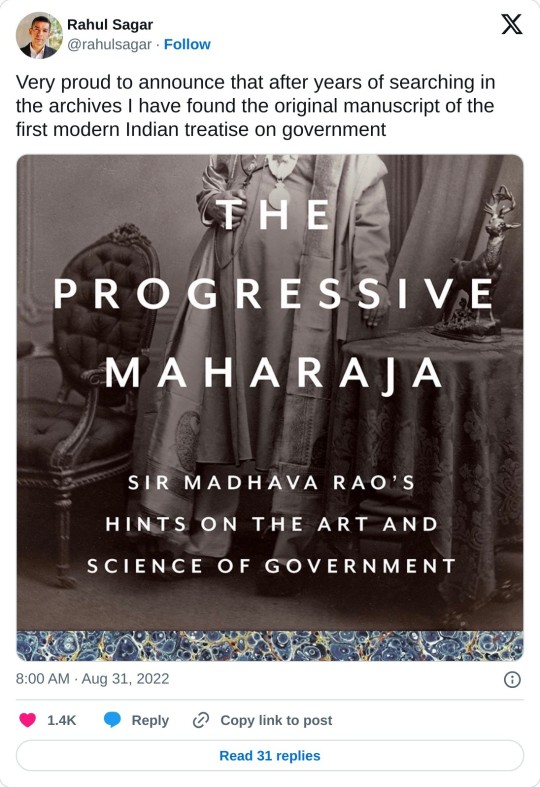
Via Saniya (CWC).
Thread mentions a Scroll article on his discovery of Rao's notes. This is the link.
0 notes
Text
Netflix's 3 Body Problem
I tried watching Netflix’s American adaptation of Three Body problem. I watched five episodes and boy, is it painful.
(Full disclaimer: I really liked the Chinese adaptation by Tencent, I read the book after I watched the drama, and I am a European of Chinese descent, so I am definitely biased.)
The general whitewashing and westernization of the story is already pretty bad. Why take a Chinese story if you’re going to make it so blandly American?
Everyone is horny and thinks about sex, relationships based on ideals are reduced to attraction and sex. Everyone is so vulgar and crass. IQ seems very low.
Ye Wenjie. What did they do to Ye Wenjie. She’s a brainless horny fanatic woman now. And Shen Yufei is replaced by a generic unhinged lady. All the scientists seem supremely dumb.
White characters explain or emphasize things in Chinese, for Chinese people, when their Mandarin is bad. Not gibberish bad, but still pretty bad. Please just use English, your white actors clearly can’t speak Chinese. Your Chinese characters can understand and speak English. Don’t hurt our ears like this. It might be cool and exotic for the average Western audience who doesn't understand Mandarin but it’s cringe and painful for us.
A small thing but since I lost my father a few months ago, it struck me pretty hard. What was that altar in Clarence Shi’s house? Just two big pricey candles and one stick of incense? This is so cold and lifeless. Where is the FOOD??? The drinks??? The flowers/plants??? You're calling your wife and you're leaving her starving and depressed!
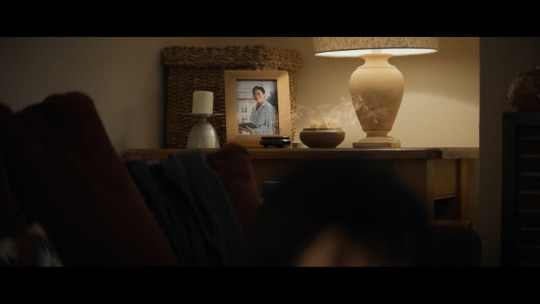
(For info, a normal small home ancestor altar should look more like this. As you can see : FOOD. Take care of your ancestors!)
The cast and setting is supposed to make this adaptation more "international"...but two British dudes decide everything when, in the novel and the Chinese adaptation, it is truly an international decision and an example of global cooperation. Five Oxford alumni of different skin color does not make this more international!
And so so so so many more things that are wrong. I feel like there is not a single Chinese brain cell in this.
All in all, I did not expect anything good, but I am still disappointed. It is so bland. No build-up. No mystery. No menace. No ambiance. Nothing. Everything is said straight to your face. They must think the audience is stupid, I guess.
Watch the Chinese adaptation
Did you like the ideas behind the Three Body Problem, either the book or the Netflix series? Are you ok with reading subtitles and watching something not in your language? Are you ok with seeing something set in another culture, with another culture's codes, not simplified and westernized for your sake? Are you ok with not being able to binge-watch it in one weekend? Are you ok with more complex characters, a slower-paced plot? Then try the Chinese adaptation. It's on Youtube and Viki, with subtitles. Legal and free.
youtube
272 notes
·
View notes
